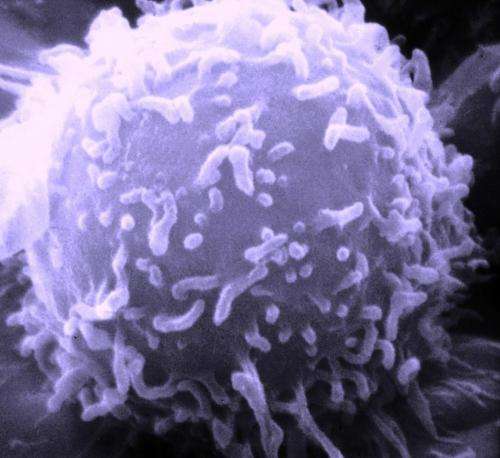
High-risk neuroblastoma is an aggressive childhood cancer with poor treatment outcomes. Despite intensive chemotherapy and radiotherapy, less than 50 percent of these children survive for five years. While the genetics of human neuroblastoma have been extensively studied, actionable therapeutics are limited.
Now researchers in the Feng lab at Boston University School of Medicine (BUSM), in collaboration with scientists in the Simon lab at the Perelman School of Medicine at the University of Pennsylvania (Penn), have not only discovered why this cancer is so aggressive but also reveal a promising therapeutic approach to treat these patients. These findings appear online in the journal Cancer Research, a journal of the American Association for Cancer Research.
“Our work pinpoints a targeted therapy for treating this group of at-risk patients, likely leading to improved survival,” said corresponding author Hui Feng, MD, Ph.D., associate professor of pharmacology and medicine at BUSM.
The research, led by Nicole M. Anderson, Ph.D., a former postdoc in the Feng lab and a current fellow in the Simon lab, combined patient sample analysis with genetic analysis of a zebrafish model of high-risk neuroblastoma and cell culture gene inactivation studies to understand the contribution of Dihydrolipoamide S-Succinyltransferase (DLST), a metabolic enzyme, and found that it promotes metastatic spread of this type of cancer.
“We show that elevated DLST expression not only predicts poor patient outcomes, but also disease aggression in human neuroblastoma. In the zebrafish model of neuroblastoma even a modest increase in DLST protein levels can accelerate neuroblastoma onset, increase tumor burden, and promote metastasis,” explains Celeste Simon, Ph.D., co-corresponding author and scientific director and investigator at Abramson Family Cancer Research Institute, UPenn at Penn. Conversely, they found a 50 percent reduction in DLST impairs neuroblastoma initiation and suppresses tumor aggression. DLST depletion in human neuroblastoma cells decreases cell growth and induces apoptosis (cell death).
The researchers utilized cell lines together with zebrafish and mouse neuroblastoma models to test the therapeutic efficacy of IACS-010759, a drug that is in clinical trials for treating other cancers. “Our studies revealed that human neuroblastoma cells are sensitive to IACS treatment, which slowed tumor cell growth in all models tested,” said Feng.
Source: Read Full Article
